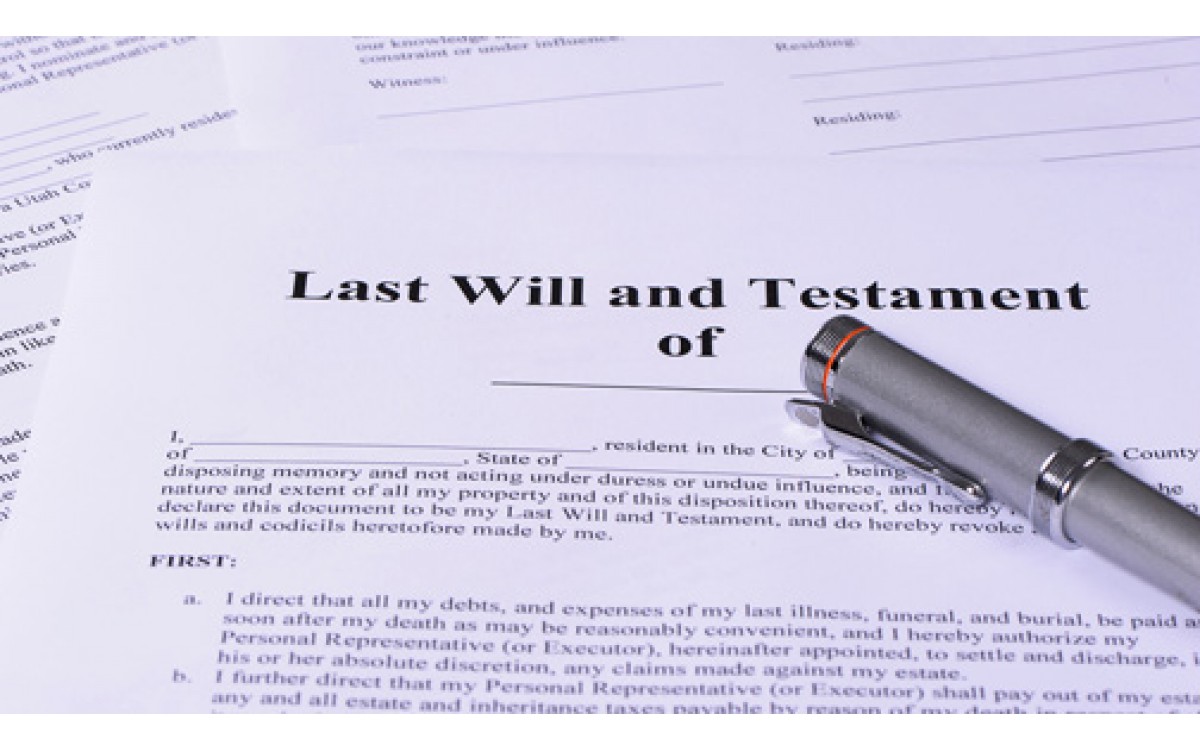Helpful Will Preparation Tips You Need To Know
A mere 4 out of every 10 American adults have a will prepared.
Some blame a lack of understanding about how to do a will. Others think they are too young and healthy to worry about one yet. Still more worry that will preparation is too expensive and time-consuming, causing them to put off the task again and again.
But wills preparation is necessary for all adults. Having a will allows you to plan for the worst and to protect your family or divide your assets in the case of your unexpected passing.
If you haven't prepared a will yet, keep reading to learn the tips you need to know to get the job done.
Consider Everything You're Leaving Behind
When most people think about will preparation, they think about defining where they're assets will go when they're gone.
If they have children, they might determine things like which child would get the house or how their money would be divided. If a person doesn't have children, they might think about who would get their house, car, or other large pieces of property in the event of their passing.
But will preparation is about more than figuring out where your assets will go. You also need to make plans for how other parts of your life and finances will be handled.
For instance, if you have children or relatives that depend on you, like an aging parent, you need to make arrangements for their care. It doesn't matter if you're young and healthy, or if you have a spouse who you think would care for them in the event of your passing.
Accidents happen. If one happened to you, and your spouse was involved, you may be leaving your children or other relatives without a home or arranged care.
Another important consideration you need to take account of in your when creating trusts is what will happen to your debts. Maybe you have outstanding debts, like loans, a mortgage on a home, or a car that you're still paying off. If these are still around when you pass away, they'll have to be paid from your estate.
This can leave you with less to care for the well-being of your loved ones, or even leave them dealing with your debts.
List the Little Things
When you're trying to figure out how to get a will done, it can be easy to overlook the details. Often times, tackling the big items, like major debts or a home are often the primary focus.
But what about your smaller possessions?
When you pass away, everything from your jewelry to your favorite piece of art will need to go somewhere. While it might seem easy to simply let your loved ones decide, this can cause a lot of tension.
Even if your family members get along, consider the emotional state they will be in. Having to deal with the death of a loved one and argue over who gets what can cause even the closest families to fight and argue.
By deciding who gets what now can help prevent this.
Add a Guardian
Caring for your children financially in case of your unexpected passing is important. But they will need more than just money if they're left trying to live without both parents.
Taking the time to choose a guardian for your children under the age of 18 is a must.
People neglect this step for a variety of reasons.
Some do so because they are healthy and not prone to taking risks. They feel as though accidents are something that happens to other people, and are confident that they'll be around to see their kids grow up.
Others don't name a guardian in their will because they just assume that their spouse will care for the kids. They don't consider that an accident could occur that would leave their children parent-less.
Still more simply assume that their other family members will care for their children. While this may be true, it doesn't necessarily mean that the child will go to the right family member.
Talking to your family or even family friends and taking the time to really consider who you would want to raise your child if you weren't around is a must.
Review Your Will Yearly
Major life events, like the birth of a grandchild or the death of a spouse, will have an effect on the terms of your will.
If you planned to leave money or other assets to your spouse, but they pass away, you'll need to make adjustments to your will. In the same way, if you have a child or grandchild, you may choose to include them in your will.
But even small events can call for changes to your will. Getting a raise at work or starting an investment portfolio might mean more assets that you need to account for in your will. Buying a house, a boat, or a car, or paying off a lease on any of those items, means that you need to account for them in your will.
Changing your will every time you make a big purchase or experience a slight change in your finances would be overwhelming. Instead, consider reviewing your will yearly to see whether it needs to be updated or changed.
Store Your Will in a Safe Place
Keeping your will safe once it is prepared is nearly as important as preparing a will in the first place.
You have a variety of options for storing a will. Your desk drawer isn't one of them.
You storage location should be protected from fire, as well as from natural disasters like hurricanes or tornadoes.
One option is to purchase a fire-proof safe or filing cabinet for your home. But if you live in an area that is regularly affected by natural disaster, that may not be enough.
Another option is a safe deposit box at a bank or credit union. While these carry an annual fee, they offer more security for your will and any other documents or valuables that you might want to keep safe.
If a safe deposit box or safe in your home isn't an option, or if you want an added layer of security, you could store additional copies of your will with a trusted friend or family member who lives in a different region than you.
Starting Your Family's Wills Preparation
Wills preparation doesn't have to be intimidating.
With the right planning and these tips, you can make the complicated, confusing process easier, and get your affairs in order to keep your loved ones safe and cared for in the event of your passing.
No matter your age, the type of assets you have, and whether you're a parent or not, everyone should have a will in place.
If you're ready to start working on your own will, our estate planning resources can help. Check them out today!









